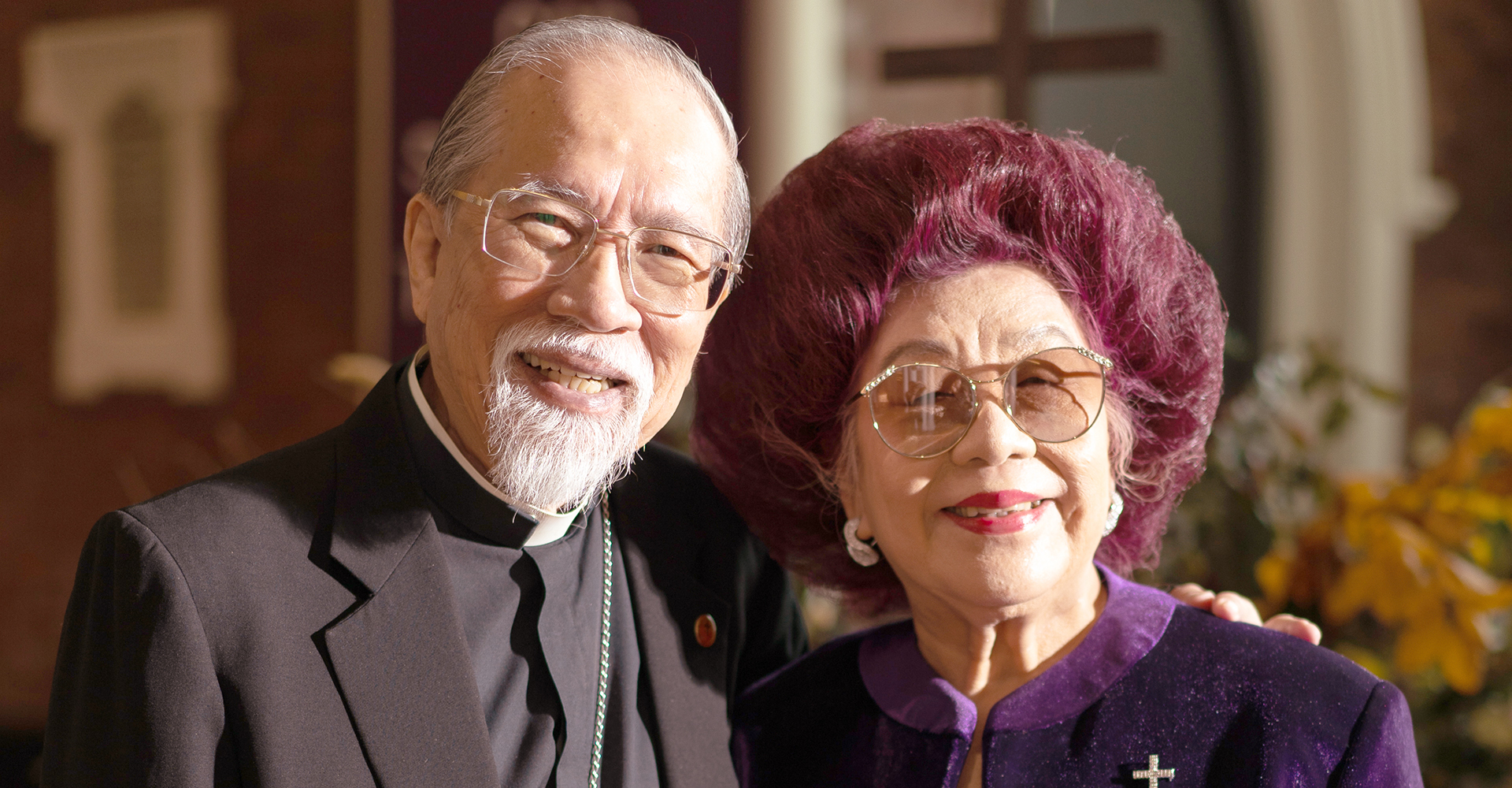At barely 27 years old, Pastor Isaac Lim was thrown into the deep end of pastoring. He had just finished his studies at Trinity Theological College (TTC) and had served for about a year and a half at KKMC, before he was given the reins as pastor-in-charge (PIC) at Pentecost Methodist Church (PMC).
He was not even ordained yet at that time but had special dispensation to baptise, marry and bury. On his first day as PIC at PMC someone passed away. Isaac recalls he had to call his mentor Rev Ong Chaik Ghee to get a ‘tutorial’ on how to conduct a funeral service.
Rev Ong, who had been Isaac’s senior pastor at KKMC during his teenage days, was the one who showed Isaac what it meant to be a pastor and how to be one. It was also Rev Ong who officiated at Isaac’s and Shirley’s wedding in 1972 together with Rev Wong Hoon Hee.
Isaac shares: “After I completed my A levels, I responded to an offer by Singapore Youth for Christ (SYFC) to be trained as a director. Up till then, I had been actively involved at YFC’s City Club. The Club included members from Raffles Institution (RI), Methodist Girls’ School, St Joseph’s Institution (SJI) and other schools in the city area. I was then a student at SJI as the school was near my home at Beach Road. We held our meetings at the Social Hall of Wesley Methodist Church (WMC), which the then pastor-in-charge Rev Christopher Smith kindly allowed.
“When my pastor, Rev Ong, heard about my plans to serve at SYFC, he was really upset. He called me up and rebuked me for not choosing to serve the Methodist Church. As a result, I heeded my pastor’s advice and went straight to Trinity Theological College (TTC) for my first degree in theology. Rev Ong had walked us through our youth and was the one pastor who truly cared for both Shirley and I. We will always be grateful for his love and concern for us.”
A Life Partner of God’s Choice
Shirley remembers a happy childhood, and more so, an acute consciousness that God was always with her—leading and guiding. She shares: “I grew up in a Singapore that was distinctly different from what it is today. I attended Griffiths Primary School and used to walk to school every day. Along the way, I would pass by slums where kids slept on bare floors in their huts. My heart went out to them, and even then, as a little girl, I recall I had a strong desire to serve God in my own small way by often giving away my daily allowance of five cents to them.
“I then spent my secondary years at Raffles Girls’ School (RGS). God seemed to be preparing me for leadership when I was appointed Head Prefect. Here at RGS, I also joined Youth for Christ (YFC). I remember with much affection Mrs Verda Poulson, the wife of American missionary pastor Ernest Poulson1, who was our YFC advisor. She was a wonderful mentor and mother figure to all of us and she was the one who got us praying for a life partner of God’s choice. My years at RGS were very nurturing years. God’s hand has always been there in the tapestry of time through all the different seasons of my life.”
Shirley met Isaac when she was 16 years old at KKMC. During her pre-university years, she was very active with the MYF at KKMC, and even went on to form the 7.30am church choir. Isaac and Shirley got to know each other better during these years, as they served together in the MYF.
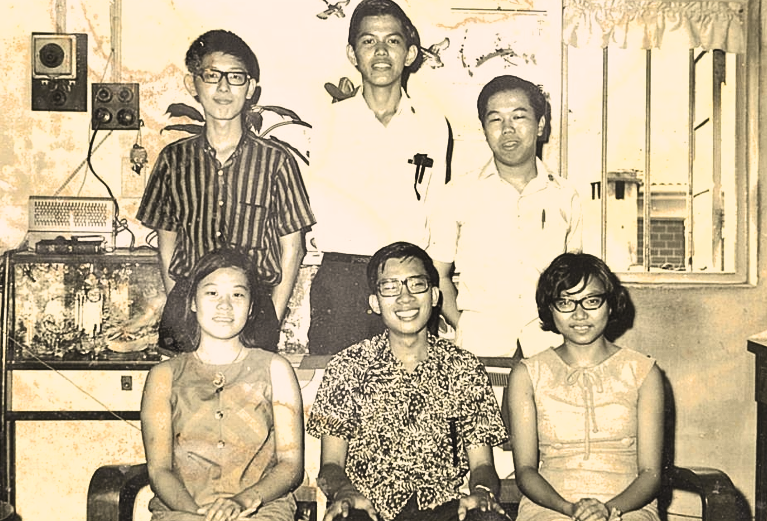
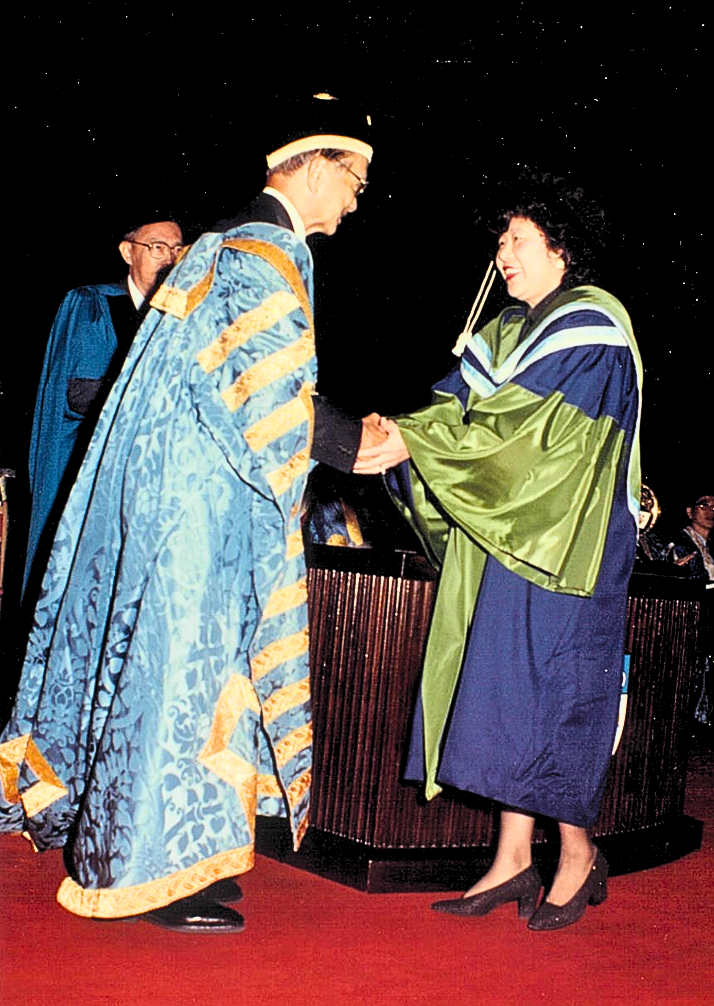
Shirley went on to do her undergraduate degree at the then University of Singapore (later the National University of Singapore or NUS) and then joined the Teachers Training College (TTC) before going on to earn her Master’s and PhD degrees in Applied Linguistics from NUS and a Research Fellowship at Harvard University.
Isaac popped the question after a few years of knowing Shirley: “Would you like to be a pastor’s wife?” For Shirley, this ‘proposal’ did not come as a surprise. They were both already serving closely together in church, and marriage seemed a logical step forward, as part of a partnership. Shirley added: “This further confirmed for me Isaac’s calling as a pastor, and it was thus incumbent on me to be as supportive as I could as a pastor’s wife, with our marriage a commitment to life-long ministry.”
And so started a journey of more than five decades — one that has brought both Shirley and Isaac together with shared goals and visions of serving and blessing others, according to God’s will and purposes.
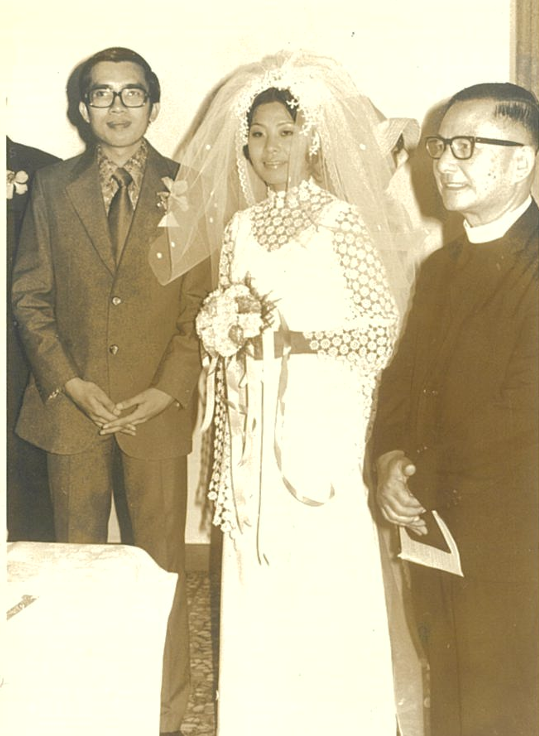
Isaac and Shirley married in December 1972, two years after Shirley started her teaching career. Gloria was born in 1973. In 1977, a few years before Charis was born in 1980, Shirley took leave from teaching at RI to accompany Isaac to Aberdeen, Scotland for his postgraduate studies at the University of Aberdeen. Shirley, in tandem, acquired postgraduate diplomas in Psychology and Education at Aberdeen University. Isaac’s Master of Letters course was in Primal Religions—a degree that has enabled him to gain a better understanding of other religious systems in the Asian context. They returned to Singapore in 1978.
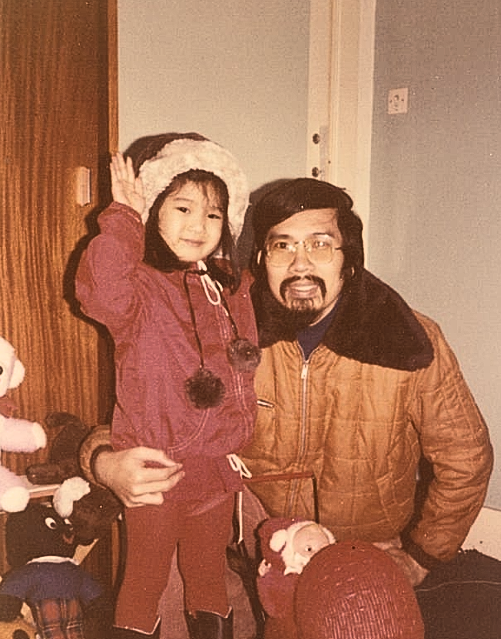
On Revival: “I think God has a message for us”
1972 marked the year of the Clock Tower Revival2 at the Anglo Chinese School (ACS) at Barker Road; this was when the Holy Spirit fell dramatically upon a group of young boys who had gathered for regular prayer. This outpouring of the Holy Spirit led them to experience the fullness of God, very much like what the early apostles would have experienced on the day of Pentecost. This marked the beginning of a charismatic revival that swept across many mainline Anglican and Methodist churches, including WMC.
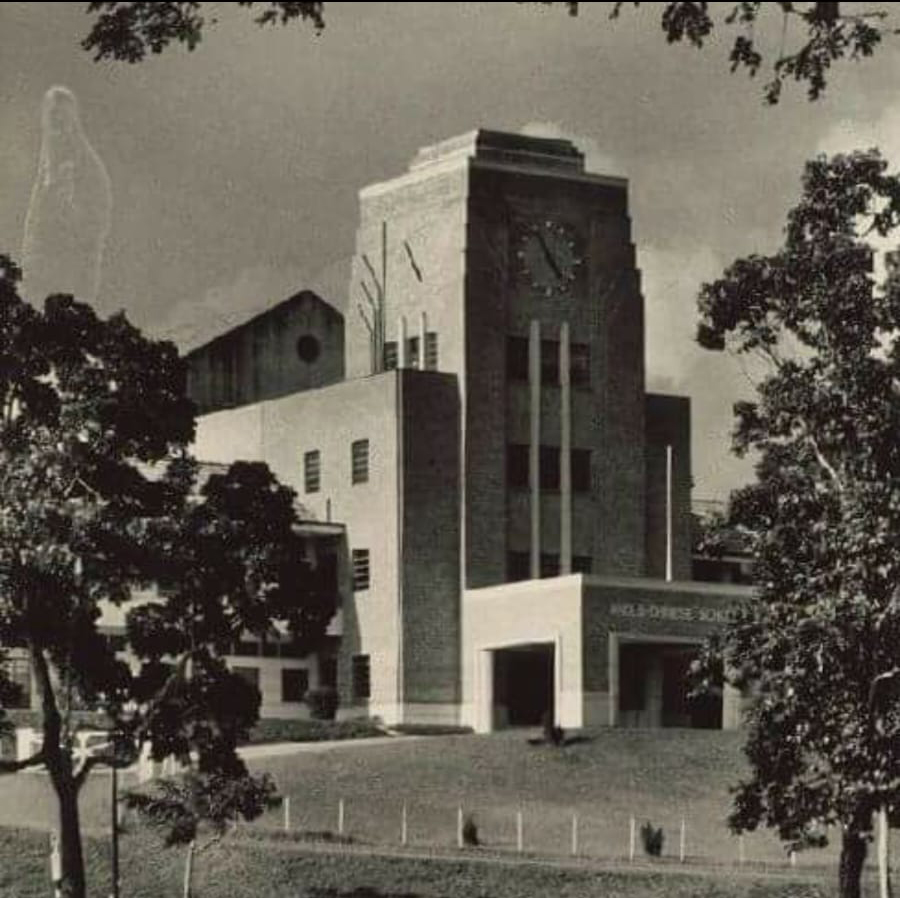
Retired Methodist pastor Rev Melvin Huang recalls: “The hunger for the Word, the hunger for prayer and the desire to preach the gospel were the hallmarks of the revival.”
Just before returning to Singapore in 1978, Isaac was notified about his appointment as an associate pastor at WMC under the leadership of Rev Dr Tony Chi. Isaac recalled: “At that time, I felt a little apprehensive about serving at WMC as it had become charismatic.”
In fact earlier on, when he was still at PMC in 1976, Isaac recalls: “For some time, this idea of the ACS Clock Tower Revival bothered me. I decided to talk to God about it. One morning in the quiet of the PMC Sanctuary, I found myself speaking in tongues. As the experience was neither extraordinary nor emotional, I dismissed the experience altogether.”
Isaac’s appointment led him to meetings that were charismatic in nature. These were attended by significant church leaders as well. He said, “Despite seeing other members pray in tongues at prayer meetings—and these included long-time members like Prof Khoo Oon Teik, Tan Boon Chiang and Khoo Hin Hiong, I said no to their prayers for the gift of tongues to come upon me. But I went along with what was happening at Wesley, including handling the Wednesday night prayer meetings. It was not until Shirley became pregnant with Charis in 1980 that my charismatic outlook was dramatically changed.”
Two to three months before giving birth to Charis, Shirley had asked Isaac if he could speak in tongues. Isaac said yes, but Shirley thought he was bluffing as he had never told her about his earlier charismatic experience. She asked him to let her hear what speaking in tongues sounded like. He agreed on the condition that she would not laugh. He spoke and she laughed. The next morning, Shirley woke up speaking in tongues, and he laughed.
A month before Charis’ birth, Shirley dreamt that she was in a very dark room. She stretched out her hand for the switch, but somehow the switch moved away from her. She then prayed and sang hymns, but nothing happened. Then as she began to pray in tongues, the room lit up, and Shirley started to praise God aloud in her dream. It was then that Isaac was awakened and asked her what she was praising God for.
Shirley said to Isaac: “I think God has a message for us.”
Through this, Isaac realised that God wanted him to be serious about the move and work of the Holy Spirit. It was then that he decided to soak himself in the charismatic renewal that was taking place in Singapore. They began to experience the grace and favour of God through the gifts of the Spirit. That is also why Shirley and Isaac named their son “Charis”, a Greek word which means “grace and favour”.
As he began to expose himself to the charismatic renewal, including attending Full Gospel Business Men’s Fellowship meetings, Isaac found that there were aspects he liked: “I liked the worship, and to see the power of God manifested in the ministry of healing, deliverance, inner transformation, inner healing, and enabling people to experience the power and presence of God.
“However, I believe that one may not always receive the gift of tongues after being baptised in the Holy Spirit as there are other gifts. As pastor, I always made sure that there was no dichotomy between the traditional and charismatic services, and that whether one can speak in tongues or not should not split the church. This is because the baptism of the Holy Spirit is open to all—regardless of whether one worships Him in a traditional or charismatic service. There will always be evidence of a Holy Spirit baptism. And finally, it is the gift of love that must unite the church, and help us to become one, because love is a fruit of the Holy Spirit.”
Sacred Partnership, Weathering Storms Together
While the marriage proposal was about being a ‘pastor’s wife’, Shirley Lim was everything and much more. Shirley says: “I’m so grateful to the Lord that there was space created for us, as wives of pastors, to be involved in so many aspects of ministry at church. During his long tenure as a pastor, I’ve supported him by going together with him wherever and whenever there was need for ministry. Very often, Isaac would receive calls in the middle of the night as someone in the hospital needed prayer. We would both go together. Somehow even after a long day of work, God would always give us the energy as we drew from His rivers of living waters.
“I have been very honoured to be a pastor’s wife. Through our time at WMC, I have learnt to listen out for God and to hear what He is saying. In partnership with Isaac in altar ministry, counselling and praying for the sick and the distressed, we learnt to follow Christ and to align with His purpose. Together we just trusted God to help us. At times, when Isaac was not available, I would go on my own to pray for someone who was critically ill. I was truly blessed to see how God could work miracles of healing and deliverance! It was most fulfilling. Since the days of my youth, God has instilled in me a deep love for people.”
From the time that Isaac was appointed to WMC in 1978 and through to 1989, Shirley has remained steadfastly by his side. She did not take a back seat as a pastor’s wife but also set up many new ministries and initiatives to respond to the needs of the Church and the community. This was in spite of a very heavy work schedule as a Head teacher at RI from 1971 to 1983, and then as a Senior Lecturer at Nanyang Technology University (NTU) from 1983 to 1996.
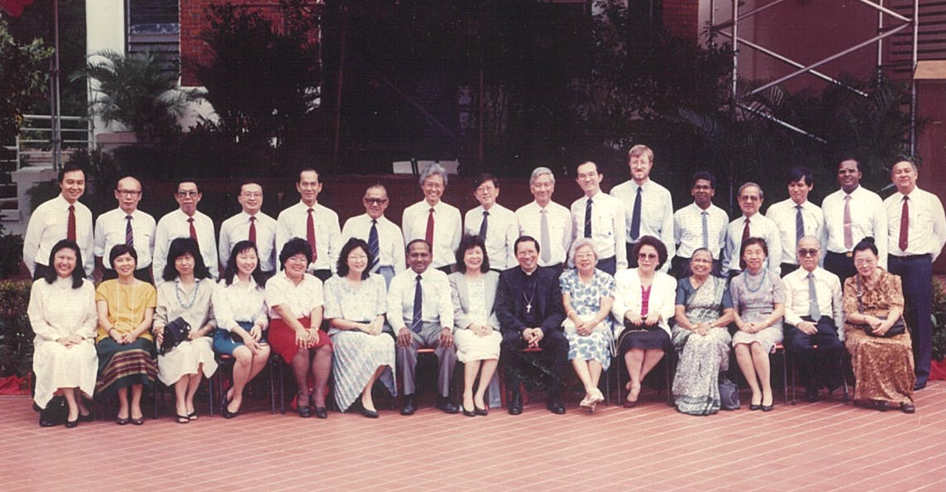
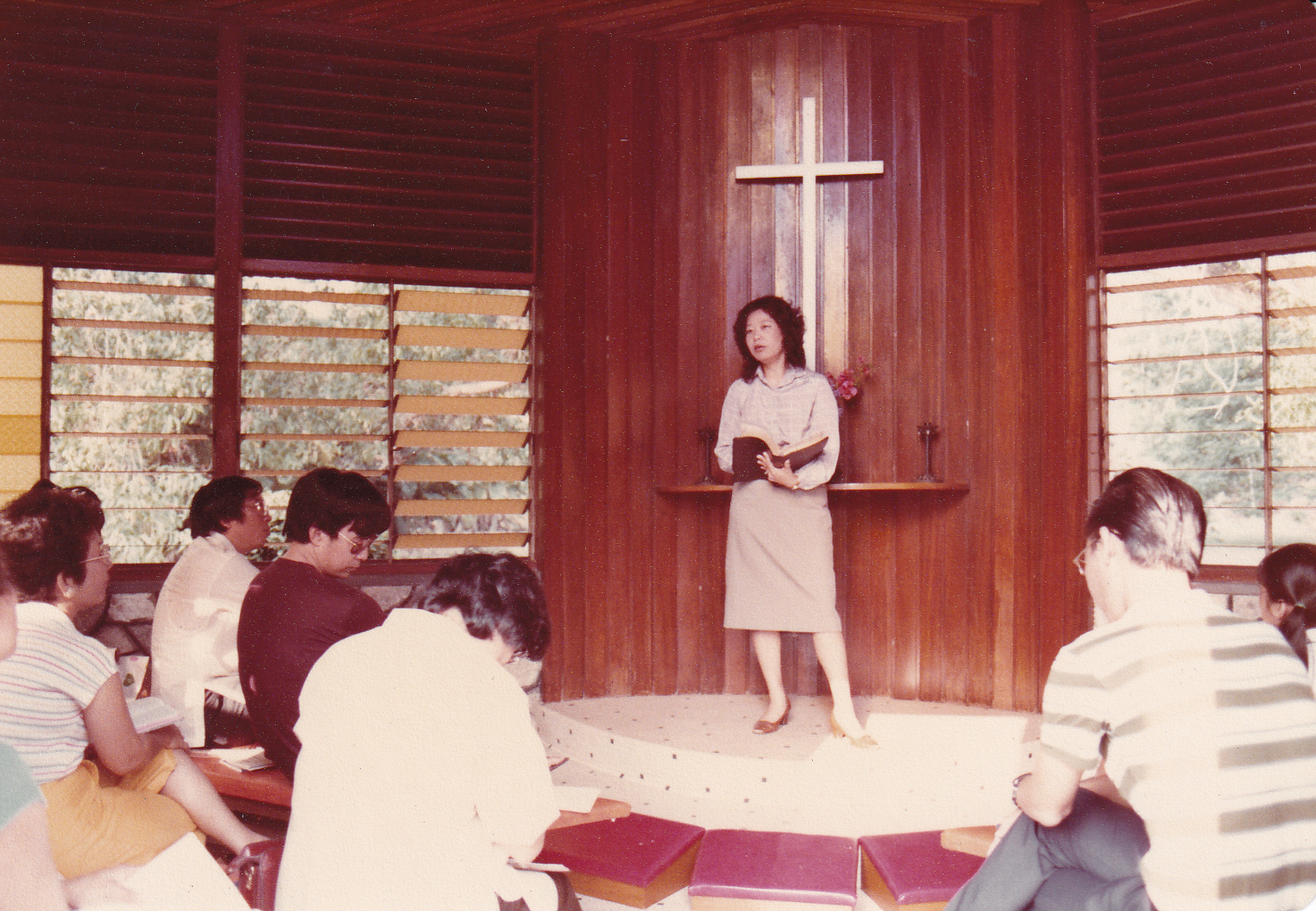
It was not always smooth sailing, and during this season, they faced one of the most challenging storms of their lives.
In 1980, just three months after Shirley gave birth to Charis, the baby came down with a dangerously high fever caused by encephalitis, an infection of the inner brain. He had to be hospitalised and put on a drip for three days and three nights. The situation was serious. Shirley’s former students from RI, by then housemen at the university hospital where Charis was warded, visited and comforted Shirley.
On the third night of baby Charis’ infection, as Shirley was holding her baby who was attached to drips, interceding for her child, she cried out to God: “Lord, if you heal him, I will give you fuller service.” That same night, God spoke to Shirley at 2am. He told her to take the drip out of Charis’ arm, as it was causing an infection. Shirley immediately woke the doctor up to ask for this to be done. Though the doctor was reluctant, he did so after getting Shirley’s signed waiver. By 8am that same morning, the fever subsided, and Shirley was told to bring her son home.
Two years later, as they continued to share the testimony of how Charis was healed, a church member came up to Shirley to say that she had been one of the doctors present in the same ward. She told Shirley that she had thought that Charis would have been a “vegetable”, and yet, he had miraculously survived this crisis and was even learning to play the violin by then.
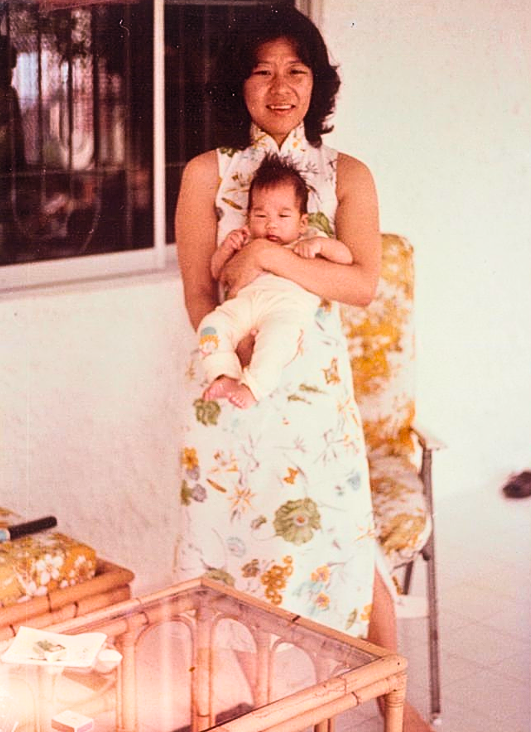
Shirley shares: “This was the community of love that surrounded us. Every time we see Charis, both Isaac and I are reminded that God is great, all the time. Indeed, it was an intense spiritual experience for me, which created in me an even greater desire and empowerment to serve God in a fuller way. All glory to Him!”
In serving God in a fuller way, Shirley was guided by several key principles as summed up in the acronym P-R-A-Y-E-R: Presence of God; Renewal; Actualisation of His principles; You, focusing on the other person; Evangelism; and Reaching out.
God Said: “Leave That to Me”
When Isaac was appointed to WMC in 1978 after returning from Aberdeen, he was the associate pastor to the PIC, Rev Dr Tony Chi.
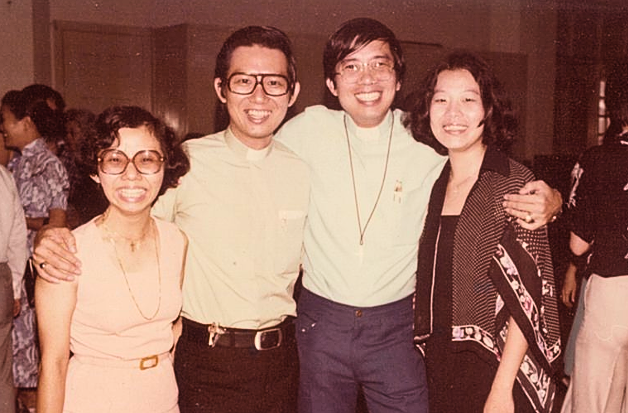
Isaac recalls: “It was really a privilege to have served with Tony. I learnt a lot from him in relation to how he handled the church and the pulpit. We had a very good partnership.”
In 1976, Tony had started the Victory Meetings. These were evangelistic musicals that were held at different venues like the National Theatre (at River Valley Road), the World Trade Centre Auditorium and at Kallang Theatre. The Victory Meetings, held over two to three nights, really helped to bring the church together, with worship led by a combined choir, drawn from the different church services. The preacher would always be the PIC.
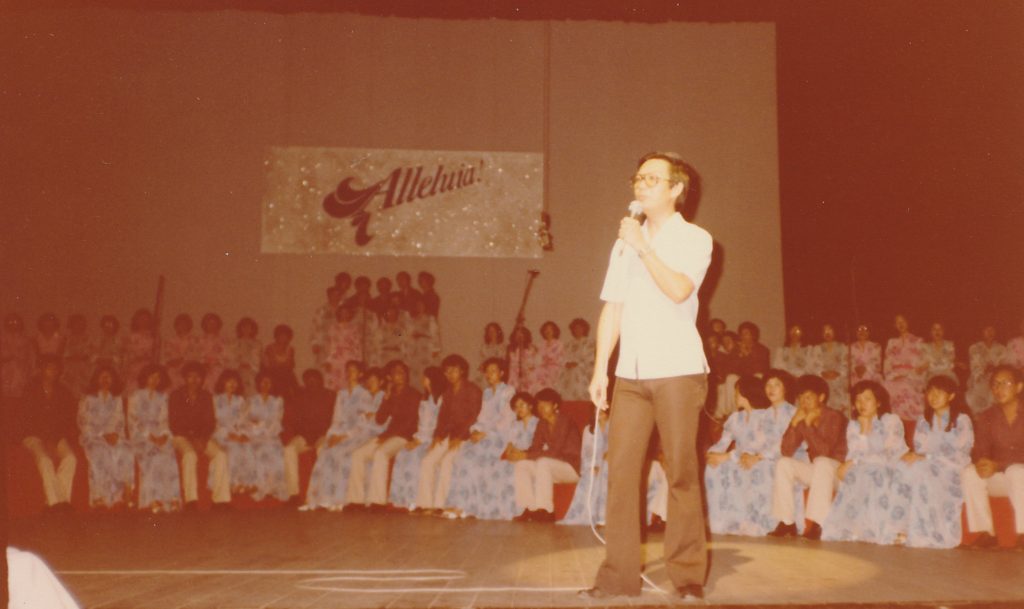
In 1982, Isaac was appointed PIC after Tony responded to a call to serve at Wesley Central Mission in Sydney, Australia. On the continuation of the Victory Meetings, Isaac said: “I struggled with continuing Tony’s Victory Meeting tradition, but God wanted me to do it and so I obeyed, though with some trepidation. You see, Tony was not only extroverted, he was also an excellent and effective preacher. In contrast, I was more introverted and would be a lot less confident especially when preaching at an evangelistic rally.
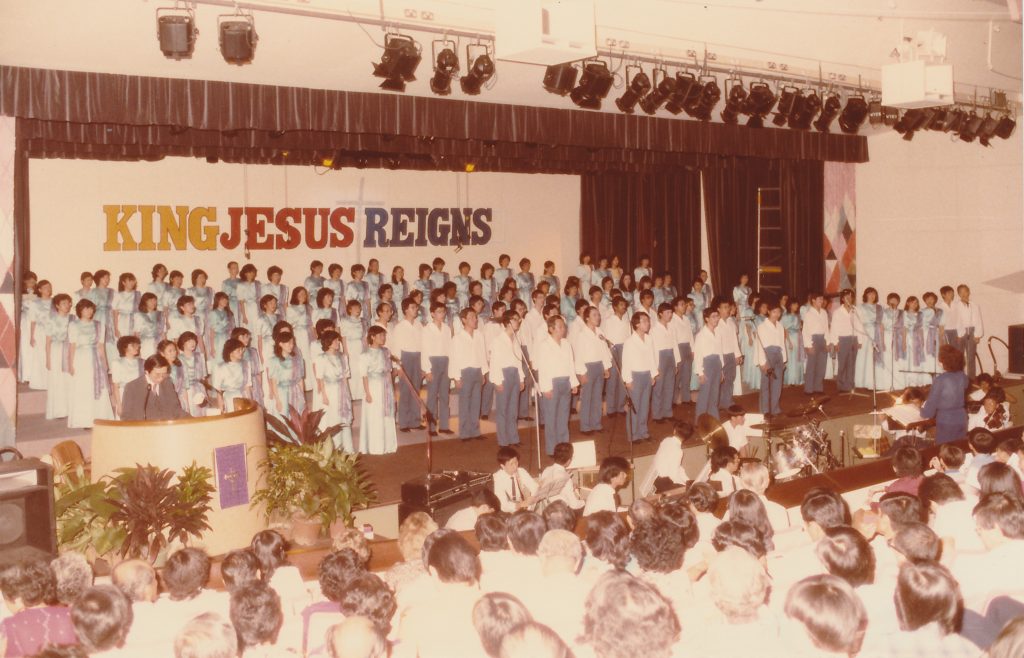
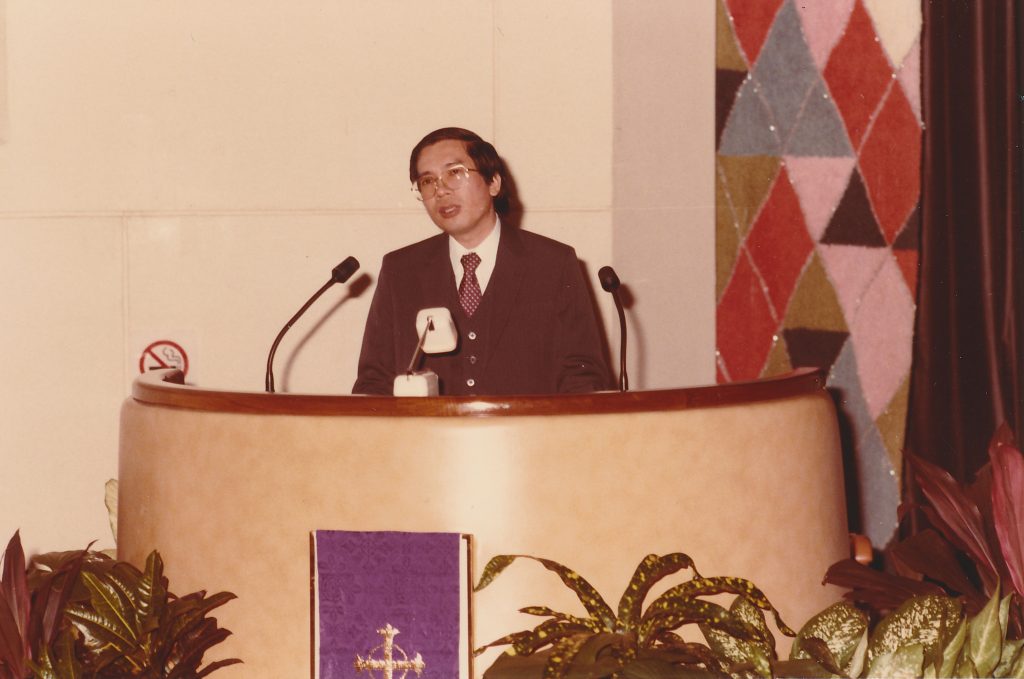
“Three evenings of Victory 5 meetings took place in February 1984. The theme was ‘King Jesus Reigns’. On the first night, after the musical, it was time for me to preach and then to extend the invitation to the congregation to come forward to accept Jesus as Lord. To my horror, not a single person came forward. I was completely discouraged—I asked myself what had gone wrong. That night, after returning home, I fell on my knees to pray for God’s presence, anointing and response to what had happened. God said: ‘Leave that to me.’ I then realised that this was a lesson that I had to learn. It was a lesson of TRUST, to be less self-conscious and to recognise that GOD is in total control. And indeed HE was—on the second and third nights of Victory 5, many people came forward to respond to the invitation.”
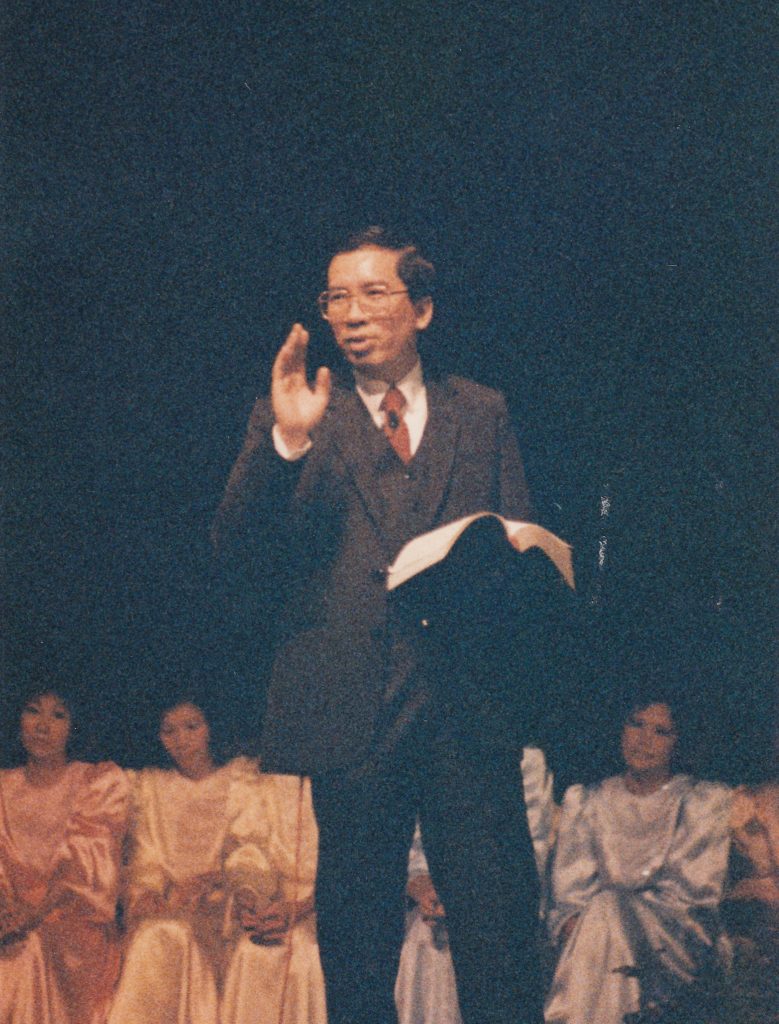
Church Must Be a Community Where People Feel It’s Home
WMC continued to grow in both congregation numbers and ministries under Isaac’s leadership as PIC at WMC. The number of Sunday services increased to seven in 1987, comprising traditional and prayer and praise services. Church membership grew to almost 3,000. Additional folding chairs had to be placed in the centre aisle of the Sanctuary to accommodate the growing attendance during the morning services. Frequently, the overflow stretched even to the choir pews!
Finally, a decision was made in 1987 to extend the Sanctuary to more than double its original seating capacity. In September 1989, the church extension was dedicated to the glory of God.
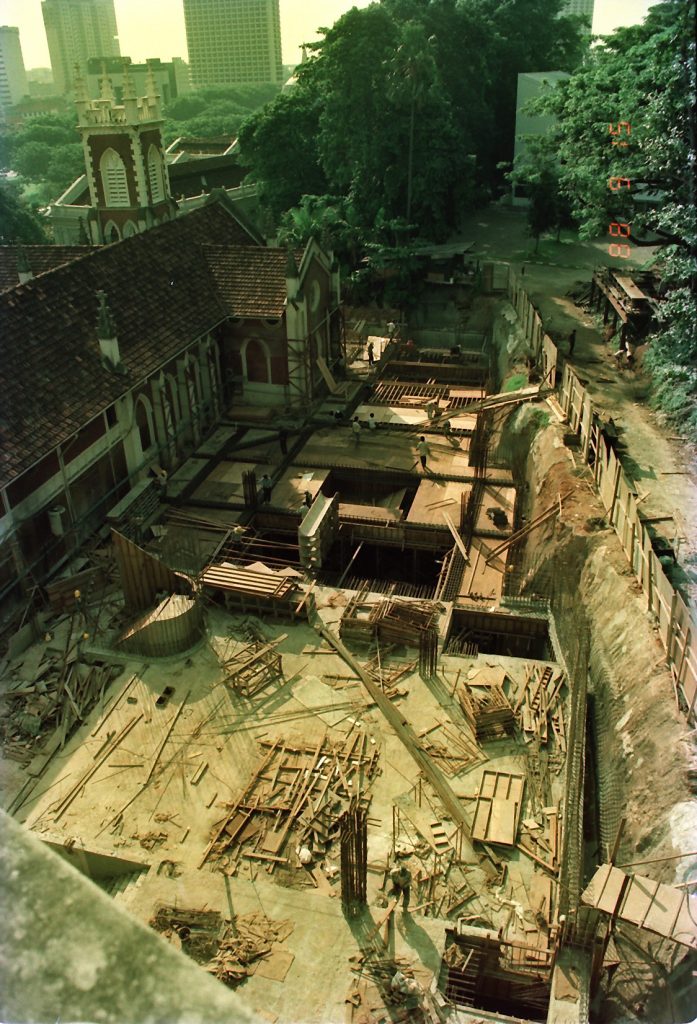
Isaac recognized the need to build community as the church grew. He reflected: “People come to church because they want to feel God’s presence and that others care for them. Preaching is essential, but it has to make sense to the listener, who in turn must be challenged to respond. When listeners feel touched, they respond, then someone prays with them, and it is what happens after that is very important. They need to have a ‘facility’ to help them receive the touch of God. And as God works through human beings, what better way than to belong to a small group or ministry group where people can share the Word and pray with one another?”
Isaac and Shirley then spent a year in 1984 preparing the ground to start the Small Group Ministry (SGM) at WMC. An open invitation was sent out to members to step up as Small Group leaders and who would have the stamina to spend a year to be trained by Isaac and Shirley.
Members who signed up for this year-long training included Philip and Anne Ng, Peter and Doris Chow, David and Joan Boen, Dr Wu Dar Ching and Lorna Wu, Ng Kwee Choo and Theresa Ng, Liau Nyuk Siong and Doris Liau, Dr Lim Lean Huat and Doreen Lim, Tan Chek Hin and Tan Geok Chin, Tan Soo Hian and Sally Tan, and many more couples ready to open their homes for Small Group meetings. Altogether about 30 members lasted the year and eight groups were then formed in 1985. From there, the SGM grew through the years and is today a vibrant part of church life, with about 270 groups meeting at least fortnightly across Singapore.
Isaac explained: “By the early 80s, small groups were already being implemented in many churches of other denominations. But I also realised that the small group ministry is also very much a part of our Wesleyan heritage. For John Wesley, the founder of Methodism, living holy lives required believers to share their lives in intimate fellowship on a regular basis. Meeting in small groups enabled mutual accountability, with members in a small group receiving support, prayer, encouragement and fellowship.
“Our year-long training of Small Group leaders included meeting the group every fortnight. We helped them understand what the small group system was about, its scriptural basis, and the Methodist history of class and band meetings. After a year, a church-wide announcement was made. We provided church members with locations where the leaders were based, for those living nearby to join.”
As both husband and wife worked closely together as a team to shepherd and guide the growing church, Shirley added: “Each person who served as a Small Group leader showed true, genuine love to one another. This ministry of ‘small groups’ really helped bond the community in love and in spirit and in fact, everyone was a ‘pastor’ to one another.”
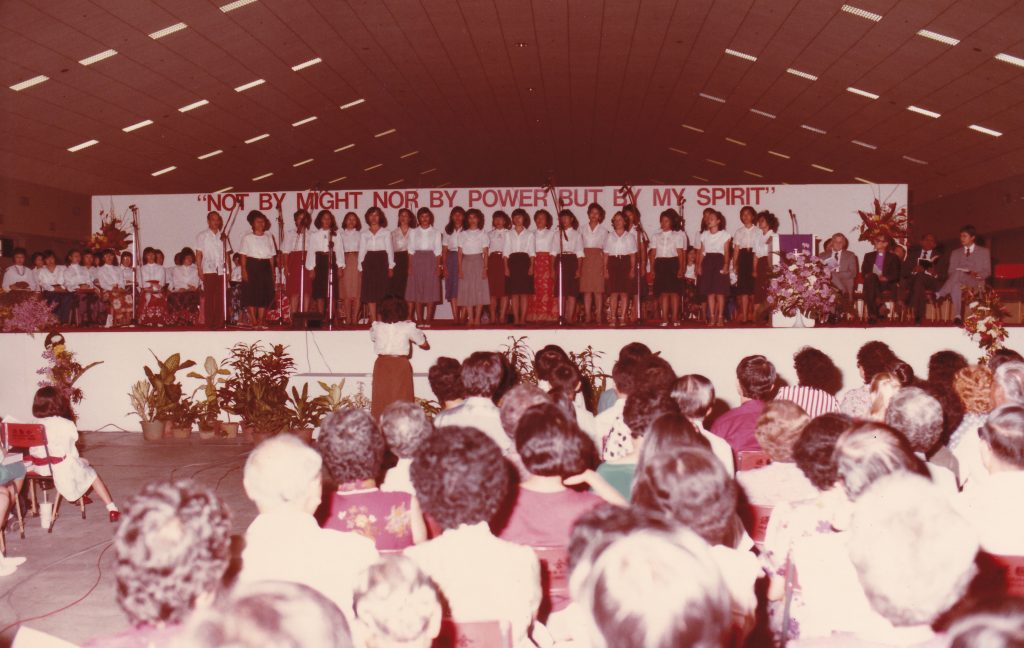
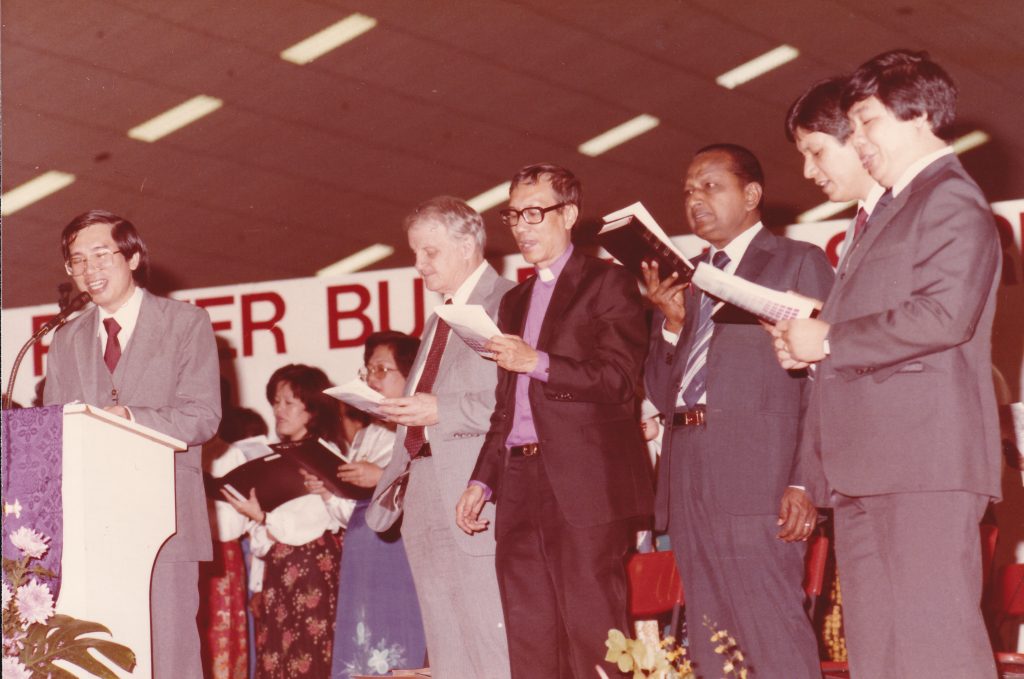
Building a Relational Culture to Love and Care for One Another
In 1983, the first ever WMC Family Camp was held at the Methodist Centre, a modest one-storey wooden building with basic amenities in Port Dickson. The theme was on marriage enrichment, with Isaac delivering the main messages on the topic of spiritual truth, and Liau Nyuk Siong on family life.
The eight WMC families present at the Camp included Nyuk Siong and Doris, Donald and Anna Wee, Tay Wei Lian and Poh Imm, Alfred and Rosalind Foong, Peter and Doris Chow. For many of them, this Camp was transformative, as they experienced and witnessed God at work through His grace and healing powers.
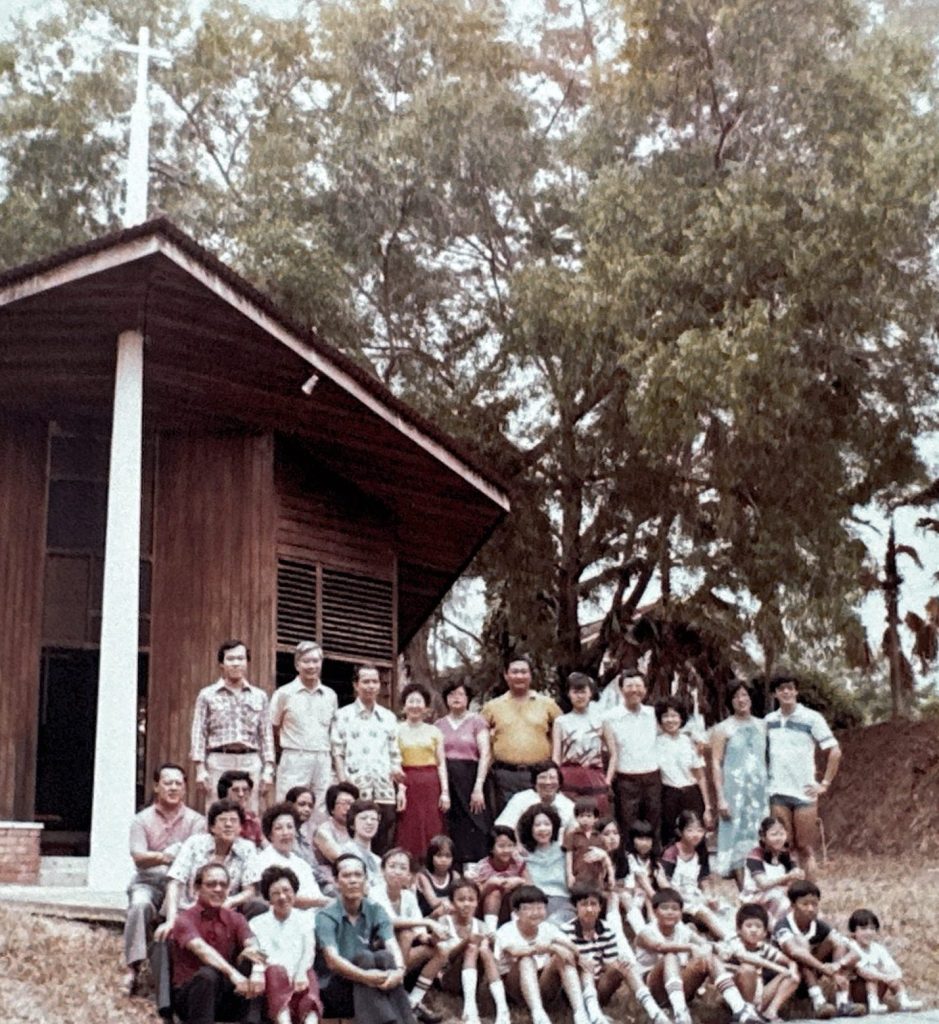
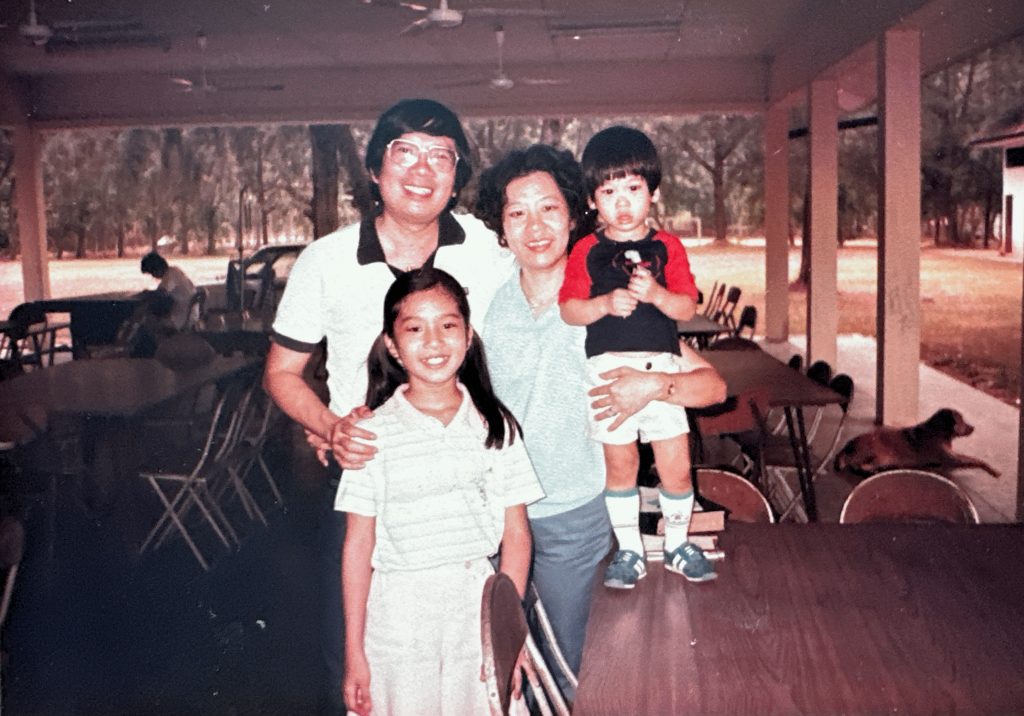
After an evening of fun and laughter, one of the campers, Ruth Ong, suddenly collapsed with a heart seizure. While everyone joined hands to pray for Ruth, Isaac and Nyuk Siong rushed out to look for a doctor, but they were not able to locate one. By the next morning however, Ruth was up and about, recovered from her ordeal—it was indeed a miracle!
Doris Chow attributes her being ‘born again’ at this Camp, where they had witnessed the miraculous hand of God and where she learnt to pray.
Isaac shares: “The family camp certainly gave us the opportunity to forge deeper friendships as we got to know one another better. During my seven years as pastor in charge at Wesley, I learned to remember names of members and where they sat when they came to church on Sundays. I wanted to build a relational culture as I tried to get to know as many members as possible. I also organised events to bring church members closer together. These included a ‘Labour Day Clean-Up’, where we got as many church members as possible to help us clean up the church. The response to this was fantastic—we cleaned every corner of the church!”
This spirit of a relational culture, built on love and caring for one another, was also expressed in several other key initiatives in response to needs within the church and in the community.
Shirley elaborates: “I had sensed that there was a need for a ministry for women to pray and minister to one another. And so, with the help and support of sisters in Christ like Mrs Koh Chi Chin, Dr Chan Beng See and Mrs Cecilia Lau, we started Wesley CareForce3 to provide counselling, prayer and care for women in need of prayer support in their work, families and relationships. We had a room in the basement carpark, and there we provided many hours of prayer and ministry to women from the church and the community. Everyone who volunteered was very blessed in turn, and many who received ministry emerged strong and resilient.
“Additionally, we were also led to set up a good childcare centre with Christian values. This opportunity came when we could use the premises that Fairfield Methodist Girls’ School had vacated at Neil Road in the 1980s. And so the first Wesley Child Development Centre4 (WCDC) was set up in 1986. I also believe that we were the first Methodist church to offer full-day childcare services which met the social needs of children and families living in that area, which included Chinatown. The children and parents of the WCDC were also warmly encouraged and welcomed to attend church services on designated Sundays.”

There was a palpable unity of heart and spirit that enabled the church to be God’s avenue of grace and blessing to all who came from both near and far. As they worked closely together, the bonds of respect, fellowship and friendship between pastor and parish were strong, which no doubt led to much being successfully achieved as a body of Christ during Isaac and Shirley’s time at WMC.
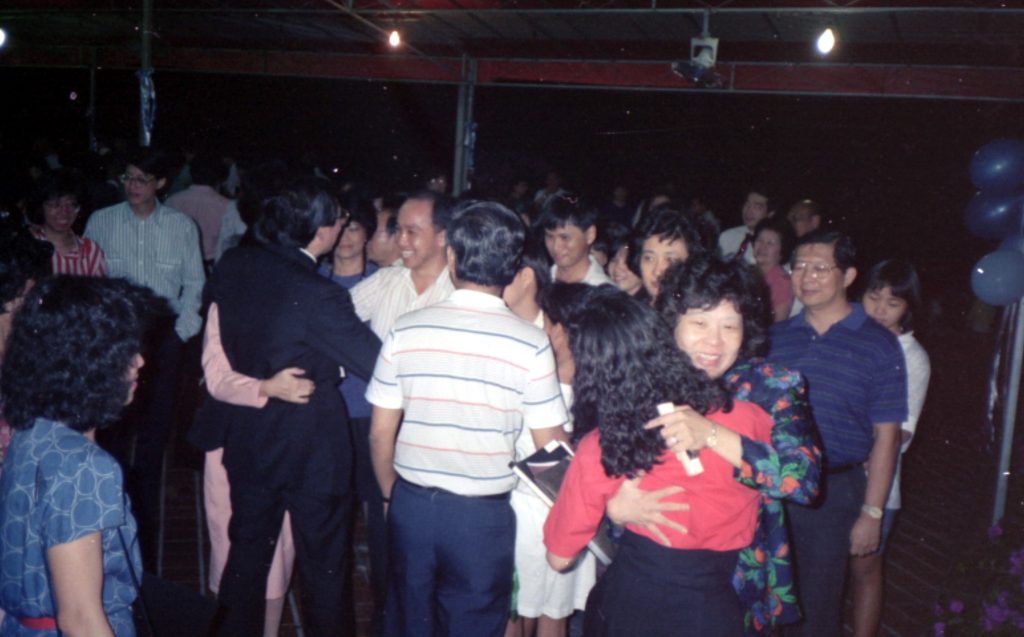
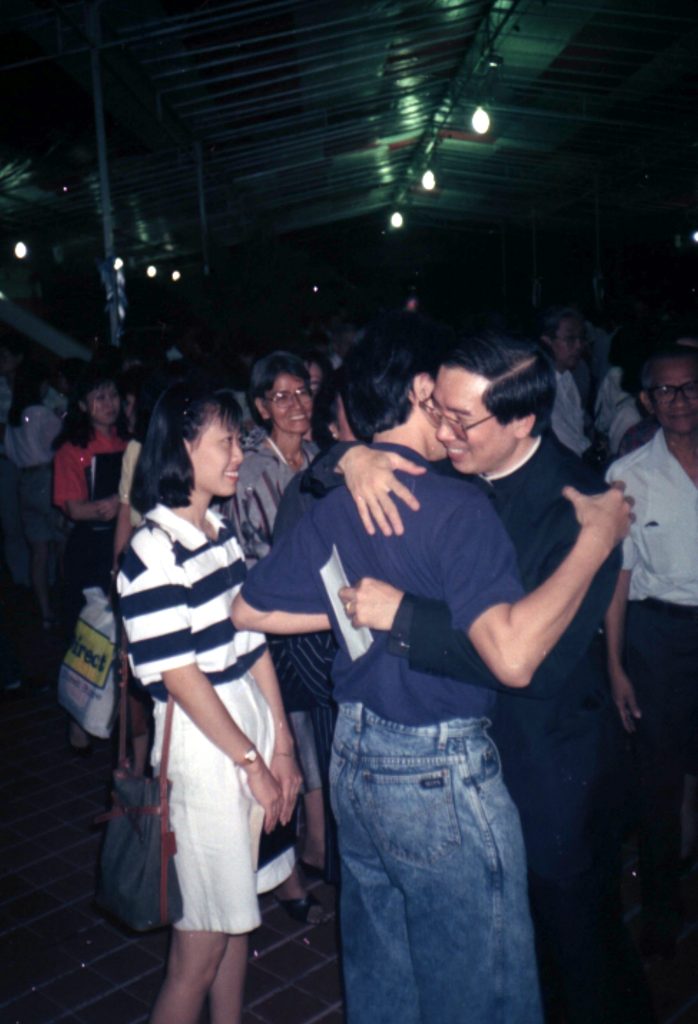
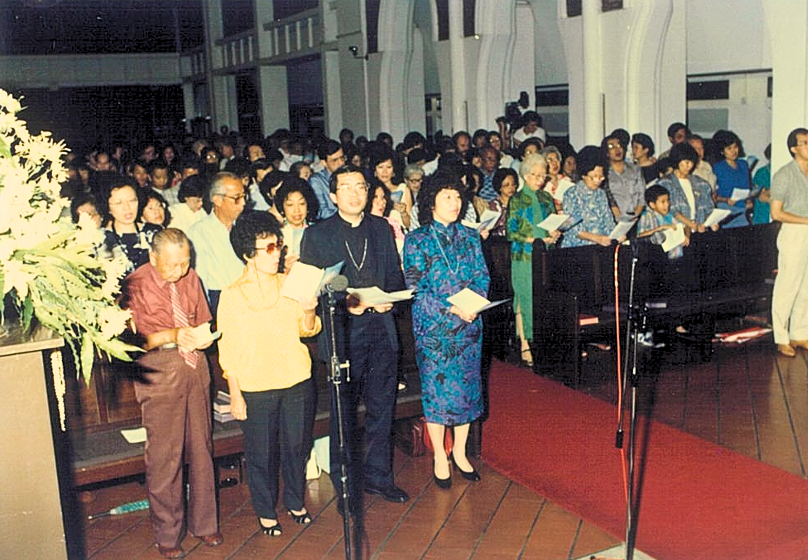
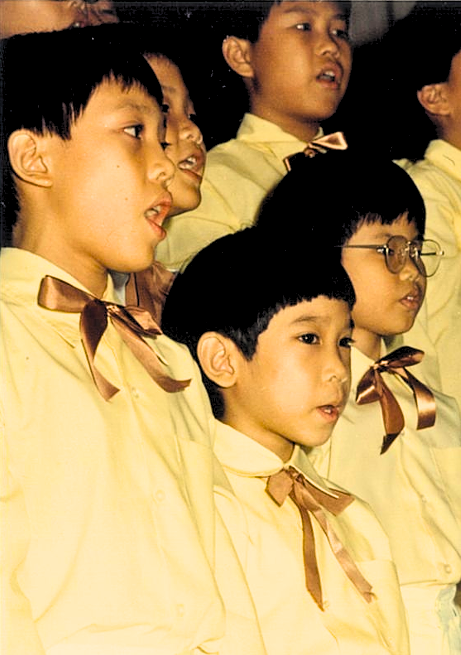
Heeding the Master’s Will Every Day, and Doing Without Delay
Twenty years ago, Rev Isaac Lim, having served 12 years as President of TRAC (1992 to 2004), reflected on the passage of time in the preamble of his final Presidential Address: “Time squandered cannot be replaced. Time is a one-way journey. It moves onward, never backwards. It presents opportunities to be explored yet calls for a decisiveness to act. Hence the good we seek to do should be done without delay. The Will of the Master should be heeded on a daily basis lest we stray beyond the boundary of His will.”
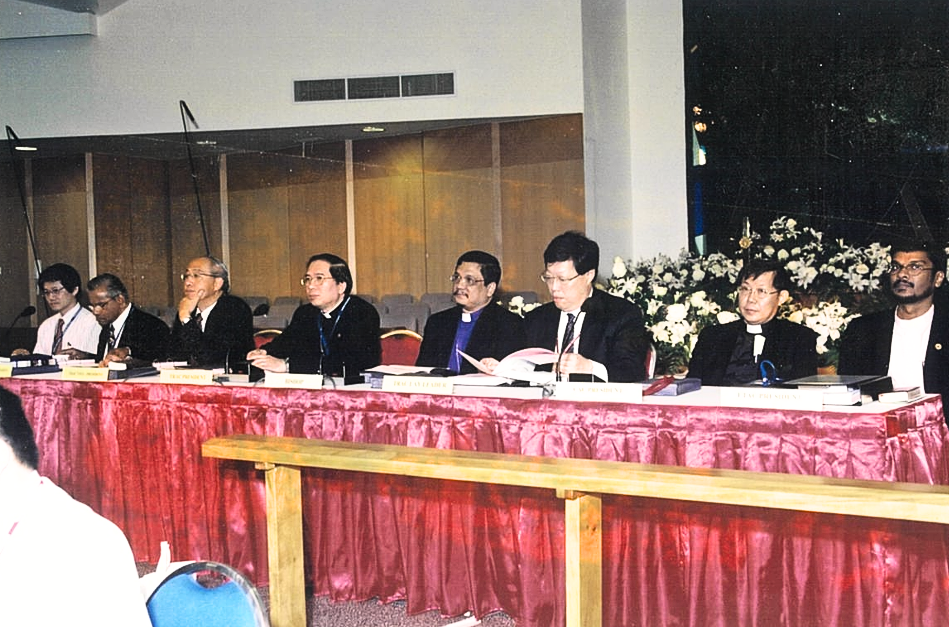
Many initiatives were implemented during Isaac’s presidency. In particular, these focused on encouraging a more robust culture of prayer; leadership development among young pastors and lay persons; addressing the state of work with youth; and building a stronger connectivity within the Conference.
One of the top highlights of Isaac’s time in office at TRAC was the International Prayer Conference (IPC) for Wesleyans in Renewal. Isaac recalls: “God had placed this burden in my heart in 1999 to pray for the Methodist Church globally. After the idea was mooted to and accepted by the Conference, we planned to hold the IPC in June 2003. But with the onset of SARS (Severe Acute Respiratory Syndrome) that same year, the IPC was then postponed to June 2004.”
The IPC was held at the Anglo-Chinese School Barker Road campus and saw more than a thousand participants from 22 countries converging to join hearts and spirits together in supplication to our Lord God. All TRAC churches in Singapore were also represented. Positive outcomes from this milestone event included similar prayer conferences organised in England, Eastern Europe and the USA. Isaac added: “The IPC helped us to build greater prayer focus and to regain the Wesleyan spirit, as we went on our knees to pray for revival in our churches.”
In Singapore, Rev Dr Wee Boon Hup was inspired by Rev Terry Teykl, whom he had met at the IPC, to adopt the 24/7 prayer experience at Paya Lebar Methodist Church.
The other highlight during Isaac’s presidency was the Young Methodist Leaders’ Conference (YMLC), the first of which was held in Johor Bahru in July 2000. Pastors and leaders were asked to identify, nominate and sponsor leaders for the YMLC, which has since been taking place over the past 24 years. Participants at each of these Conferences have left with life-long friendships and importantly, spiritual friendships that have lasted the test of time.
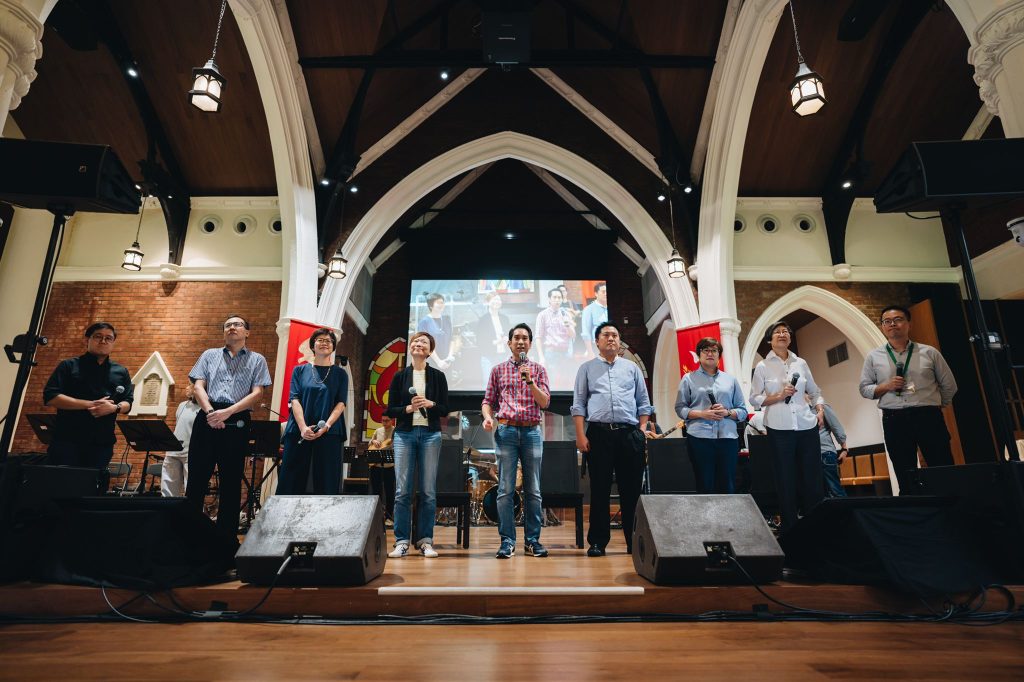
Isaac shared: “It was always my vision to have a leadership pipeline for the church, laity and clergy. During my two quadrennia as TRAC President, we were able to put in place structures that would assist us in raising leaders for the days ahead. I’m delighted that the YMLC, now more than 20 years on, has taken place almost every year with the support of pastors and churches. I believe the YMLC has been a nodal point for up and coming leaders—both pastors and laity—to meet, learn from one another and journey together even long after each Conference is over. I was also happy to have initiated a mentoring of pastors during my Presidency. I met with new PICs and MOTs (Ministers on Trial) on a monthly basis to discuss matters pertaining to church administration and ministry, as well as to learn and grow together.”
Some participants from the inaugural year 2000 YMLC batch shared their reflections.
A theological student then, and now PIC of Barker Road Methodist Church (BRMC), Rev Wendy Watson recalls: “I enjoyed the community experience of Methodists coming together from various sister churches, and establishing friendships. It was a time of God-led encounters, and I personally experienced His gentle fragrance and experienced Him as a person, the third person of the triune God.”
Leow Theng Huat was a civil servant with the Singapore Prisons Department, and today is a lecturer of Christian theology at TTC. He was persuaded by Rev Juliette Arulrajah, then a pastor at WMC, and he remembers: “I went rather reluctantly. At that time, I thought that the Methodist Church was rather hierarchical, and that the young could feel neglected and ignored, though some of us were brimming over with ideas which no one seemed interested in. At the YMLC however, what struck me was the encouragement we received to share honestly our views and thoughts. At the end of it, it was a valuable opportunity for us young people to communicate directly with our church leaders, who we sensed were interested in and took our views seriously.”
Then just serving his national service, and today PIC at Living Waters Methodist Church, and Chaplain in-charge at ACS Independent, Rev Khoo Kay Huat looks to Isaac as a “strategist and futurist”. Of his time at the first YMLC, Kay Huat said: “He saw challenges that were not so obvious to us then. He sowed for what was to come, even though the fruit did not come on his watch. In that sense, we have to keep thinking and building for the long term and eternity. There was a fiery call after call by Isaac for young people to stand up and be counted, and many did respond.”
Charis Lim, today part of the WMC leadership, echoes this: “YMLC reminded us that we need to prepare for the future of the church, through spiritual renewal and the rekindling of the Wesleyan spirit. John Wesley’s saying that was shared at that first meeting has resonated with me through these decades: ‘Give me one hundred preachers who fear nothing but sin, and desire nothing but God, and I care not whether they be clergymen or laymen, they alone will shake the gates of Hell and set up the kingdom of Heaven upon Earth.’”
Weaving the Ministry of Care, Comfort & Counselling Into Church Life
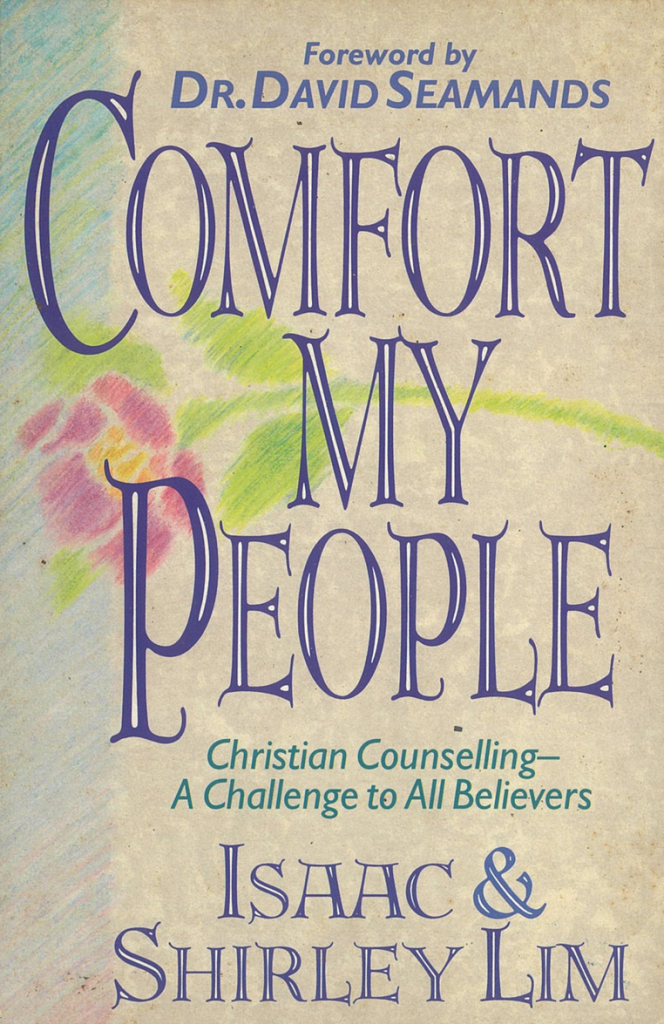
As far back as the 1980s, there was already a rapid rise of personal and relational problems, and simply not enough professionally trained counsellors. In response, Isaac and Shirley co-authored their book Comfort My People: Christian Counselling—A Challenge to All Believers5 in 1988, to lay out the principles and practices of equipping, enabling and empowering lay persons in the church to give God their best in meeting the needs of the community around them.
This book was part of their overall plan to build up the training of lay counsellors at WMC to provide a whole ministry of care, comfort and counselling woven into church life through a network of small groups and prayer partners. Lay counselling courses were conducted regularly for participants to understand the basics of counselling and help members and friends in need. One of these sessions saw an attendance of over 300 persons!
Dr David Seamands said in his Foreword in Comfort My People: “… this book is not some theory of lay counselling and group dynamics… it is real, and describes what is now taking place in a local church. …It is biblical, psychologically sound, and puts into everyday practice the amazing power of a church determined to be literally a caring community of believers.” Dr Seamands also believed that this was a necessary ministry to not only Christians but would form a major part of the church’s evangelistic outreach to win non-Christians to Christ.
Although their book Comfort my People was written over 36 years ago, its narrative and call to all Christians to be equipped as lay counsellors remain as relevant today. It must not be a ministry left only to the professionals and specially trained pastors. Taking a section from their book, Isaac and Shirley reaffirm: “We believe that today our great Master is still and ever will be by our side to give that unction and authority as He calls us to minister like He did to persons who were distressed, unhappy and lost. …And surely God does not give us a commission without the empowerment.”
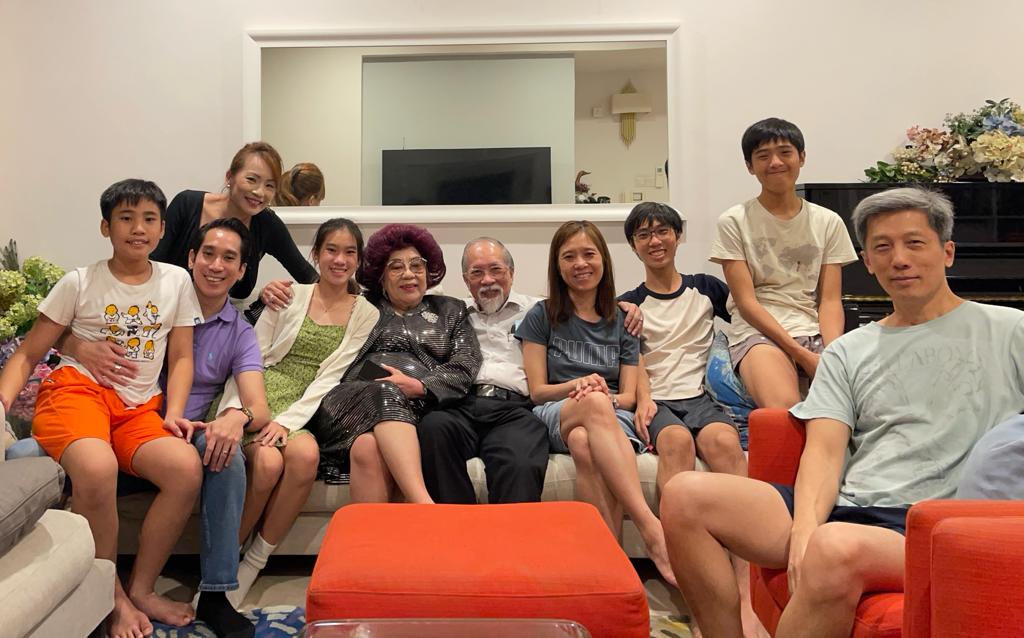
It is no surprise that as they see counselling as a clarion call, both Isaac and Shirley affirm God’s call in their lives, as summarised in the ending part of their book: “Let us remember that there is a crying need in the souls of men, women and children which only the Comfort of Christ can adequately meet, and that we are called to be a part of Christ’s Mission of love to the world. As we respond, let us be comforted that victory has been promised by our God who reminds us in Proverbs 11:14 (NASB) that ‘where there is no guidance, the people fall. But in abundance of counsellors there is victory.’ Praise God for the promise of victory as together we seek to respond to His call. ‘Comfort, O comfort My people’ says your God. (Isaiah 40:1)“
Truly – this reaffirms Isaac’s approach to ministry which he regards as a relationship: “It is only when we are willing to give ministry that comes from the heart that others can receive ministry.”

